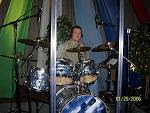Elements of Missional
The following five "Elements of Missional Churches" was produced by Tim Keller six years ago. It is a comparison of the 'Christendom' of old and being a church to the present. What do you think of these elements?
1. Discourse in the vernacular.
In 'Christendom' there is little difference between the language inside and outside of the church. Documents of the early U.S. Congress, for example, are riddled with allusions to and references from the Bible. Biblical technical terms are well-known inside and outside. In a missional church, however, terms must be explained.
The missional church avoids 'tribal' language, stylized prayer language, unnecessary evangelical pious 'jargon', and archaic language that seeks to set a 'spiritual tone.'
The missional church avoids 'we-them' language, disdainful jokes that mock people of different politics and beliefs, and dismissive, disrespectful comments about those who differ with us
The missional church avoids sentimental, pompous, 'inspirational' talk . Instead we engage the culture with gentle, self-deprecating but joyful irony the gospel creates. Humility + joy = gospel irony and realism.
The missional church avoids ever talking as if non-believing people are not present. If you speak and discourse as if your whole neighborhood is present (not just scattered Christians), eventually more and more of your neighborhood will find their way in or be invited.
Unless all of the above is the outflow of a truly humble-bold gospel-changed heart, it is all just 'marketing' and 'spin.'
2. Enter and re-tell the culture's stories with the gospel
In "Christendom" it is possible to simply exhort Christianized people to "do what they know they should." There is little or no real engagement, listening, or persuasion. It is more a matter of exhortation (and often, heavy reliance on guilt.) In a missional church preaching and communication should always assume the presence of skeptical people, and should engage their stories, not simply talk about "old times."
To "enter" means to show sympathy toward and deep acquaintance with the literature, music,theater, etc. of the existing culture's hopes, dreams, 'heroic' narratives, fears.
The older culture's story was--to be a good person, a good father/mother, son/daughter, tolive a decent, merciful, good life.
Now the culture's story is-- a) to be free and self-created and authentic (theme of freedom from oppression), and b) to make the world safe for everyone else to be the same (theme of inclusion of the 'other'; justice).
To "re-tell" means to show how only in Christ can we have freedom without slavery and embracing of the 'other' without injustice.
3. Theologically train lay people for public life and vocation
In 'Christendom' you can afford to train people just in prayer, Bible study, evangelism-- private world skills--because they are not facing radically non-Christian values in their public life--where they work, in their neighborhood, etc.
In a 'missional' church, the laity needs theological education to 'think Christianly' about everything and work with Christian distinctiveness. They need to know: a) what cultural practices are common grace and to be embraced, b) what practices are antithetical to the gospel and must be rejected, c) what practices can be adapted/revised.
In a 'missional' situation, lay people renewing and transforming the culture through distinctively Christian vocations must be lifted up as real 'kingdom work' and ministry along with the traditional ministry of the Word.
Finally, Christians will have to use the gospel to demonstrate true, Biblical love and 'tolerance' in "the public square" toward those with whom we deeply differ. This tolerance should equal or exceed that which opposing views show toward Christians. The charge of intolerance is perhaps the main 'defeater' of the gospel in the non-Christian west.
4. Create Christian community which is counter-cultural and counter-intuitive.
In Christendom, 'fellowship' is basically just a set of nurturing relationships, support and accountability. That is necessary, of course.
In a missional church, however, Christian community must go beyond that to embody a 'counter-culture,' showing the world how radically different a Christian society is with regard to sex, money, and power.
In sex. We avoid both the secular society's idolization of sex and traditional society's fear of sex. We also exhibit love rather than hostility or fear toward those whose sexual lifepatterns are different.
In money. We promote a radically generous commitment of time, money, relationships, and living space to social justice and the needs of the poor, the immigrant, the economically and physically weak.
In power. We are committed to power-sharing and relationship-building between races and classes that are alienated outside of the Body of Christ.
In general, a church must be more deeply and practically committed to deeds of compassion and social justice than traditional liberal churches and more deeply and practically committed to evangelism and conversion than traditional fundamentalist churches. This kind of church is profoundly 'counter-intuitive' to American observers. It breaks their ability to categorize (and dismiss) it as liberal or conservative. Only this kind of church has any chance in the non-Christian west.
5. Practice Christian unity as much as possible on the local level.
In Christendom, when 'everyone was a Christian' it was necessary (perhaps) for a church to define itself over against other churches. That is, to get an identity you had to say, "we are not like that church over there, or those Christians over here."
Today, however, it is much more illuminating and helpful for a church to define itself over against 'the world'--the values of the non-Christian culture. It is very important that we not spend our time bashing and criticizing other kinds of churches. That simply plays in to the common 'defeater' that Christians are all intolerant.
While we have to align ourselves in denominations that share many of our distinctives, at the local level we should cooperate and reach out to and support the other congregations and churches in our local area. This will raise many thorny issues, of course, but our bias should be in the direction of cooperation.
HT FIDE-O







No comments:
Post a Comment